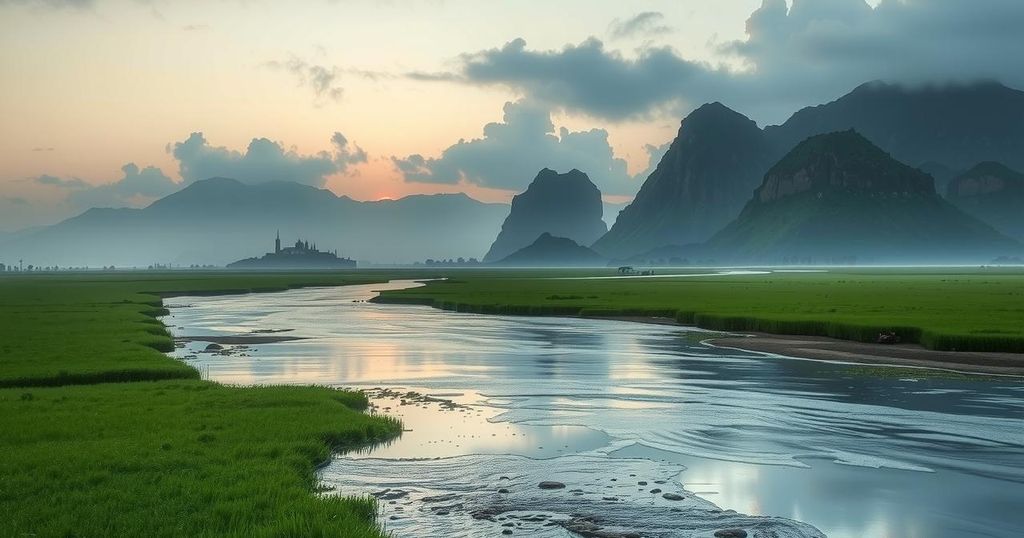DR Congo’s Foreign Minister accused Rwanda of illegal occupation and hostility, as M23 rebels captured Goma. Rwanda denied the claims, asserting it is securing borders against shelling. SADC is convening to discuss regional peacekeeping efforts. Tensions highlight the complex crisis in the Great Lakes region, with calls for sanctions against Rwanda’s leadership amidst ongoing conflict.
Thérèse Kayikwamba Wagner, the foreign minister of the Democratic Republic of Congo (DR Congo), has accused Rwanda of illegally occupying parts of her country and attempting to orchestrate regime change. This statement follows the M23 rebel group’s capture of the eastern city of Goma, prompting concerns of further conflict driving toward the capital, Kinshasa. Wagner criticized Rwanda’s actions as a violation of international law and called for accountability for Rwandan President Paul Kagame.
In response to these accusations, Rwandan government spokeswoman Yolande Makolo vehemently denied the claims, insisting that Rwandan troops are on the ground to prevent violence from spilling across the border into Rwanda. She emphasized that Rwanda seeks neither war nor territorial annexation, but rather aims to protect its national security amid cross-border shelling incidents.
Amid this escalating situation, the Southern African Development Community (SADC) is convening a special meeting in Zimbabwe to address the unrest in DR Congo. SADC has deployed peacekeeping troops, primarily from South Africa, to assist in restoring order in the volatile region, where recent clashes have resulted in casualties, including the loss of sixteen soldiers.
Rwanda’s President Kagame has publicly dismissed SADC’s involvement, asserting that its forces do not serve as peacekeeping units in this context. Makolo reiterated that the responsibility for stabilizing the DRC lies with the Congolese government, urging it to manage its territory more effectively to prevent such crises.
Minister Wagner has called for international support to be withdrawn from Rwanda, advocating for sanctions against those perpetuating violence. Additionally, she proposed that Rwanda be barred from participating in UN peacekeeping missions, criticizing the nation’s contradictory stance as a supposed peace advocate while engaging in conflict in the Great Lakes region.
The ongoing tensions between the Democratic Republic of Congo and Rwanda stem from a complex history of conflict and political instability in the region, particularly involving armed groups like the M23 rebels. The government of DR Congo accuses Rwanda of supporting these rebels and violating its sovereignty. The allegations add to a long-standing narrative of Rwandan intervention in Congolese affairs, which has historical roots in past conflicts and the Rwandan genocide’s aftermath. The involvement of regional organizations, such as SADC, emphasizes the broader implications of the conflict and the need for cooperative peacekeeping efforts in the region. Rwanda’s military presence and motives have been controversial, with accusations of warmongering juxtaposed against official claims of self-defense. Calls for international accountability and sanctions reflect the international community’s concern about peace and stability in the Great Lakes region.
In summary, the statements made by DR Congo’s Foreign Minister Thérèse Kayikwamba Wagner underscore significant tensions between DR Congo and Rwanda, amid accusations of territorial aggression and military incursions. Rwanda firmly rejects these allegations, positioning its military actions as necessary for national security. The situation has prompted a regional response from SADC, emphasizing the ongoing difficulties in achieving lasting peace in a historically unstable region. The international community’s role will be pivotal in addressing underlying issues and fostering continued dialogue.
Original Source: www.bbc.com




